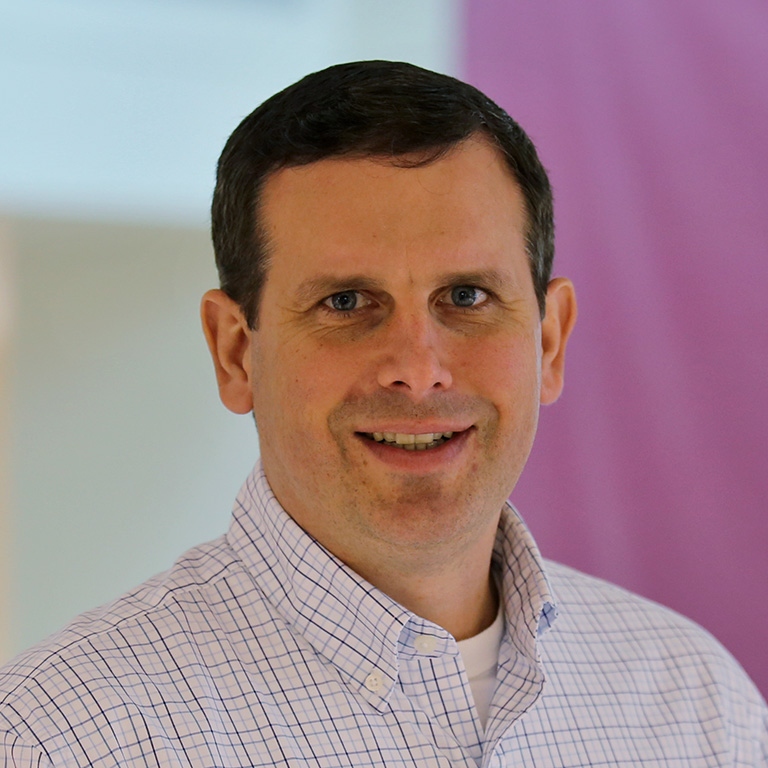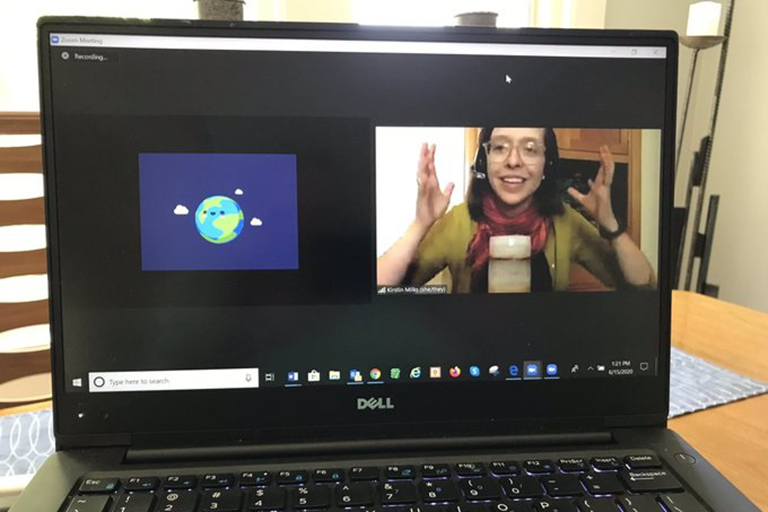For the past three years, Indiana teachers have converged on IU’s Bloomington campus to sharpen their curriculum on climate science and environmental change. With COVID-19 making that impossible this summer, organizers of the Educating for Environmental Change (EfEC) Summer Science Institute brought the workshops to the teachers instead, adapting the two three-day events for an online forum.
Thirty-nine elementary, middle, and high school teachers participated virtually in this year’s workshops, held in late June. Similar to past years, EfEC connected teachers with age-appropriate ideas, skills, and messages to engage students in environmental science. Since it may not be safe for in-person instruction to resume in the fall or continue throughout the school year, this year’s workshop specifically focused on how to make science curricula effective in a virtual setting.
“Hopefully, when they go back to their classrooms, the teachers can implement what they learned in person or in an online format,” said Adam Scribner, Director of STEM Education Initiatives for the Indiana University School of Education and one of the workshop organizers. “We’re trying to model the practices that they should be using.”
Remote instruction introduces new challenges to the classroom setting. For example, group dialogue can be more difficult to facilitate online. EfEC coordinators, however, found some creative ways to make up for the absence of face-to-face interaction. Professors and researchers delivered a mix of pre-recorded and live presentations to participants, discussions took place in small-group “breakout rooms,” and chat boxes allowed workshop attendees to share comments and ask questions. As in previous years, IU environmental scientists volunteered their time to contribute to the workshop.
Each day, the material being covered centered around a guiding question related to climate change and included classroom-ready lessons centered on authentic science practices as well as collaborative reflection. This format gave the workshop structure while also fostering a sense of community among those present, a trait critical to any workshop, especially a virtual one.
Current events also helped broaden the scope of the workshop, with recent protests in the US spurred by police brutality against people of color serving as the backdrop for discussions on how teachers can connect issues of climate and sustainability to movements for social equity and action around the globe.
“It’s pretty awesome that there are so many educators who want to give up three precious summertime days to be able to think together about teaching about environmental change and about climate justice,” said Kirstin Milks, a high school science teacher and workshop organizer. “It’s an exciting time.”
The workshops were divided between elementary-age teachers and middle and high school teachers, with the elementary sessions focused more on pedagogy and delivering content. Getting younger students to engage with environmental science supplies the foundation for more complex conversations about environmental issues down the road, Scribner said.
“A lot of the students that get to high school just don’t have the foundational knowledge that is necessary for environmental learning,” Scribner said.
Having the opportunity to engage directly with science and education experts—not to mention their peers—exposes teachers to new ideas and concepts that can help students make connections between themselves and their local and global environment, he said.
“The teachers have some very rich, meaningful conversations with the scientists, and that leads to a stronger understanding of all kinds of aspects of climate change."
Educating for Environmental Change is supported by the Environmental Resilience Institute and funded by Indiana University’s Prepared for Environmental Change Grand Challenge initiative.




